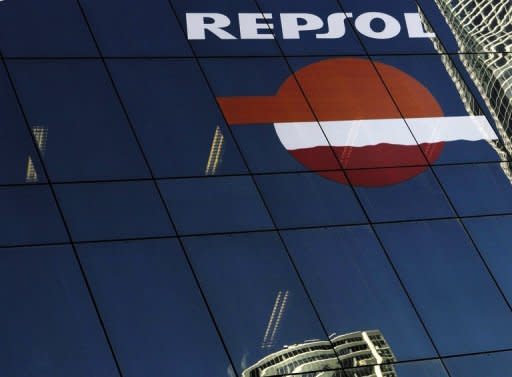Repsol chief presses Argentina for dialogue
The head of oil giant Repsol urged Argentina's government to sit down and talk, after reports that Buenos Aires planned to seize control of YPF, the Spanish firm's subsidiary there. "One has to talk, to talk, not impose or go around making remarks for politics' sake. Things have to be taken care of in the office, and by talking. People bridge their differences by talking," Repsol chairman Antonio Brufau told Radio Mitre. He has been in Buenos Aires since last week trying to get negotiations under way after the government of President Cristina Kirchner stripped YPF of 16 concessions for failing to invest enough locally. The government wants Repsol-YPF to invest more in order to boost output and in theory lower the prices, and reduce the need for costly imports. There was no immediate response from Kirchner, who reportedly met with provincial governors about the issue on Thursday. The governor of the oil-producing province of Neuquen, Jorge Sapag, said the meeting with Kirchner was to discuss transforming Repsol-YPF into a joint state and private venture. But Repsol "has received no notification from the Argentine authorities with regard to their shareholding in its subsidiary YPF," the company said Friday in a statement filed to the Madrid stock exchange. The European Union has backed Spain in the dispute. The European Commission, the EU's executive arm, said its delegation in Buenos Aires had expressed its concerns directly to the Argentine government. "We hope that Argentina respects its international commitments on the protection of foreign investments on its soil and we are on Spain's side in this situation," commission spokesman Olivier Bailly told reporters. Governors in 16 provinces of Argentina have revoked petroleum concessions held by Repsol-YPF in recent weeks, including some of the largest oil fields in the country, accounting for about 88 percent of national production. Repsol-YPF has presented provincial authorities with a plan to invest more than $4 billion in 2012-2017, including the drilling of 2,249 new wells and the upgrading of 2,664 existing ones. Argentina spent more than $9.0 billion on petroleum imports in 2011. Its oil production stood at 796,000 barrels per day in 2011, virtually unchanged since 2009.



